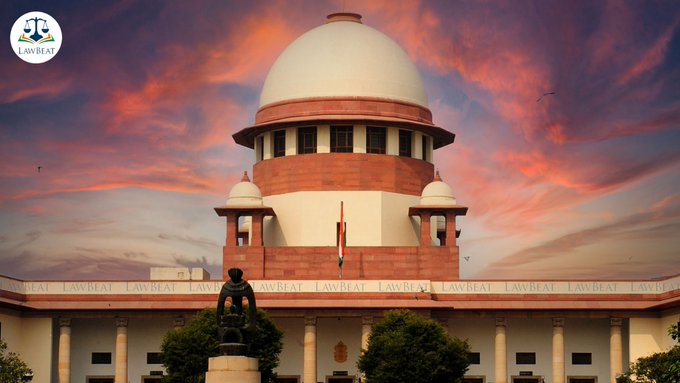Unless Higher Threshold is Met Abetment to Suicide Can't Be Used to Soothe Family's Emotions: SC

The Supreme Court emphasized that trial courts must exercise caution and not mechanically frame charges to play it safe, especially when investigating agencies disregard the essentials of Section 306, IPC
The Supreme Court on January 17, 2025, stressed that invoking the offence of abetment to suicide requires a higher threshold. While those genuinely responsible must face legal consequences, the court cautioned against using the provision merely to pacify the grieving family of the deceased.
"It is time the investigating agencies are sensitised to the law laid down by this Court under Section 306 so that persons are not subjected to the abuse of process of a totally untenable prosecution. The trial courts also should exercise great caution and circumspection and should not adopt a play it safe syndrome by mechanically framing charges, even if the investigating agencies in a given case have shown utter disregard for the ingredients of Section 306," a bench of Justices Abhay S Oka and K V Vishwanathan said.
The bench noted that for decades, the Supreme Court has repeatedly emphasized the stringent threshold required to invoke Section 306 IPC—now Section 108 read with Section 45 of the Bharatiya Nyaya Sanhita, 2023. However, this standard has often been disregarded in practice, with the police resorting to the provision too readily and without due scrutiny, court said.
The bench also highlighted the conduct of the proposed accused and the deceased, their interactions and conversations preceding the unfortunate death of the deceased should be approached from a practical point of view and not divorced from the day-to-day realities of life.
“Hyperboles employed in exchanges should not, without anything more, be glorified as an instigation to commit suicide,” the court said.
Court allowed an appeal filed by Mahendra Awase against the Madhya Pradesh High Court's judgment of July 25, 2023, which declined his to discharge him from the offences punishable under Section 306 of the IPC and maintained the charges as framed by the trial court on February 28, 2023.
On December 31, 2022, an FIR was lodged following the death of Ranjeet Singh, who ended his life, leaving behind a suicide note, alleging harassment by the appellant. As per witnesses, the appellant was harassing him with respect to repayment of a loan which one Ritesh Malakar had taken from Shree Saakh Cooperative Society Limited, Khargone.
There were certain forensic laboratory reports on audio recordings of the conversation between the deceased and the appellant. Transcripts of the conversation were also produced.
After hearing the counsel for the parties, the bench said, as is clear from the plain language of the Sections to attract the ingredient of Section 306, the accused should have abetted the commission of a suicide.
"A person abets the doing of a thing who firstly - instigates any person to do that thing or Secondly - engages with one or more other person or persons in any conspiracy for the doing of that thing, if an act or illegal omission takes place in pursuance of that conspiracy, and in order to the doing of that thing or thirdly - intentionally aids, by any act or illegal omission, the doing of that thing," the bench pointed out.
The court said in order to bring a case within the purview of Section 306 IPC, there must be a case of suicide and in the commission of the said offence, the person who is said to have abetted the commission of suicide must have played an active role by an act of instigation or by doing certain act to facilitate the commission of suicide.
"Therefore, the act of abetment by the person charged with the said offence must be proved and established by the prosecution before he could be convicted under Section 306 IPC," the bench said.
To satisfy the requirement of instigation the accused by his act or omission or by a continued course of conduct should have created such circumstances that the deceased was left with no other option except to commit suicide, the bench said.
It was also held that a word uttered in a fit of anger and emotion without intending the consequences to actually follow cannot be said to be instigation, the court added.
Applying the principle to the facts of the present case, the bench said, "We are convinced that there are no grounds to frame charges under Section 306 IPC against the appellant. This is so even if we take the prosecution’s case on a demurrer and at its highest."
The bench pointed out that a reading of the suicide note revealed that the appellant was asking the deceased to repay the loan guaranteed by the deceased and advanced to Ritesh Malakar.
"It could not be said that the appellant by performing his duty of realising outstanding loans at the behest of his employer can be said to have instigated the deceased to commit suicide," the bench said.
Equally so, with the transcripts, the court added.
Even taken literally, it could not be said that the appellant intended to instigate the commission of suicide. It could certainly not be said that the appellant by his acts created circumstances which left the deceased with no other option except to commit suicide, the court added.
"Viewed from the armchair of the appellant, the exchanges with the deceased, albeit heated, are not with intent to leave the deceased with no other option but to commit suicide. This is the conclusion we draw taking a realistic approach, keeping the context and the situation in mind. Strangely, the FIR has also been lodged after a delay of two months and twenty days," the bench said.
The court thus set aside the high court's order and discharged the accused, holding that the case against the appellant was groundless for framing a charge under Section 306, IPC.
Case Title: Mahendra Awase Vs The State of Madhya Pradesh
